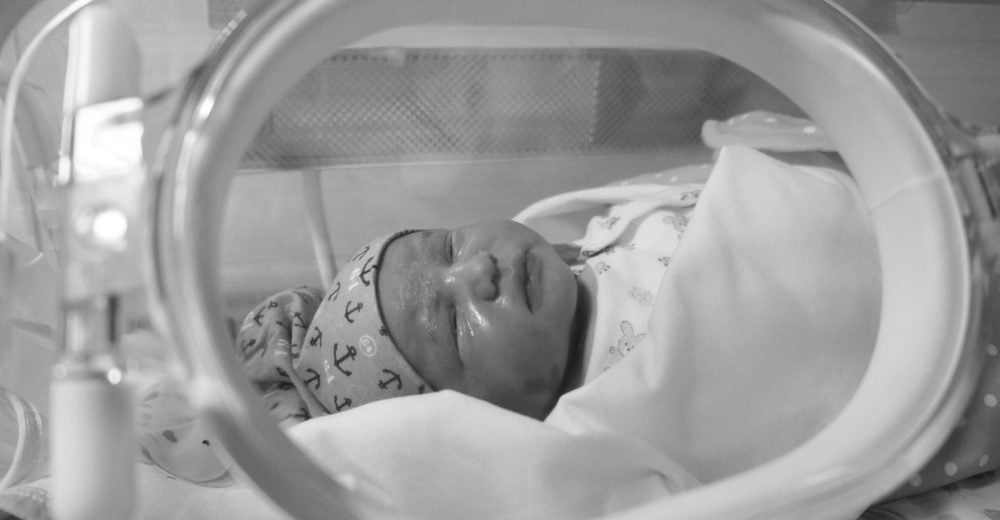Childbirth is a miraculous and nerve-wracking event – the birth of a premature baby even more so!
Typically, infants born before the 37th week of gestation are initially taken to the NICU (Neonatal Intensive Care Unit) for initial premature baby care, and shifted to the nursery slowly over time.
Tarun and Saloni Shekhar were worried when Saloni was deemed at high risk of preterm delivery. Anxious and unsure, the couple decided to seek an opinion from the neonatologist at Sitaram Bhartia Hospital in South Delhi.
What problems do premature babies have immediately after birth?
The organs of premature babies are not fully mature at the time of birth so they require careful specialized care in the NICU.
Their lungs, intestines, heart and other organ systems are still immature, due to which they require additional support in order to carry out these functions for a few months, depending upon their weight and degree of prematurity.
This support would include a delicate balance of fluids, electrolytes and nutrients administered in a carefully calibrated way through venous or oral means. Some preterms may need varying degrees of support for their lungs including oxygen therapy, positive pressure, or mechanical ventilation.
With newer advances in neonatal intensive care, these problems can be circumvented.
In our hospital we have had two babies born extremely premature at 25 weeks, close to 500 gms, who were discharged and are currently doing well
One of the leading causes of concern is risk of infection or sepsis. A premature baby’s immunity is poor, their skin is not fully developed, and they are exposed to various procedures during their stay in the NICU.
Keeping these factors in mind, in the first few days following their birth, they are cared for by neonatologists and nurses specially trained in infant care.
As the child grows, the organ systems mature and their immunity starts improving. Consequently, risk of complications or adverse events also reduce.
Do premature babies have any long term problems?
Some of the problems a preterm child may develop later are developmental delay, hearing problems, visions problems, poor intelligence and learning problems, behavioral problems, cognitive problems.
However, not all premature babies will develop these complications. The chances of long-term complications are higher in smaller babies who are more premature, and develop complications in their NICU period.
What is the general outcome for premature babies?
Tarun wondered if their baby would be fine after the initial turbulent hospital period.
“Would my child be able to go to school and conduct normal activities as he grows older?” asked Tarun.
“The general outcome of premature babies is excellent! With modern NICU care, a majority of preterms born after 30 weeks of gestation not only survive but do well at all subsequent milestones and activities.”
Some risk of developmental issues exists after 30 weeks also. Preterm babies, however, born earlier than 30 weeks are generally at higher risk of development delays, hearing and visual disturbances – more so compared to full-term infants.
As neonatologists, however, there are certain principles put into place for optimum premature baby care such as –
- Avoiding Harmful Factors: Minimising adverse events during NICU stay like avoiding exposure to excessive oxygen, infections, etc as they can negatively affect the infant’s brain and cause adverse effects.
- Regular Follow-Up: In order to identify complications on time, regular follow-ups even after discharge is very important. Please note that the degree of prematurity also affects the need for a longer follow-up in the infant, so consistent checkups are recommended for upto 3-5 years.
- Early Intervention: One of the steps in premature baby care is early intervention if any problems are observed during follow up visits. It is known that early identification and intervention leads to early rehabilitation.
“If we follow these general principles, the long term outcome of these babies will improve.”
What is a parent’s role in management of a premature baby admitted to the NICU?
At the hospital, we believe in ‘family integrated care’ wherein the mothers are actively involved in the care of babies admitted in NICU, especially as the child moves closer to going home.
Mothers are encouraged to visit the NICU or nursery, where they can touch, hold or talk to the baby.
We tell the mothers that expressing their own breast milk for the baby has various advantages for the infant. Breast milk helps in reducing infections and diseases such as necrotising enterocolitis (NEC), and promoting better growth and development of the baby.
The mothers are also taught how to perform Kangaroo Mother Care (KMC), wherein the mother is advised to place the baby on her bare chest, allowing skin-to-skin contact.
It has been observed that KMC increases the breast milk output in the mother, reduces infection, improves the neural development of the infant, and improves the bond between the mother.
Mothers also taught to care for the baby on their own, including feeding, changing clothes, identifying danger signs, etc. all while the baby is admitted. This helps the parents when the baby gets discharged.
How do you take care of a premature baby when the baby goes home after discharge?
The principles of taking care of a premature baby are essentially the same as for a full-term baby, although some differences need to be highlighted.
Tarun and Saloni were encouraged to keep these points in mind when it came to premature baby care at home:
1.Feeding
When it comes to preterm baby care, feeding a newborn should be done more cautiously as they are not able to show the same cues of hunger as a full-term infant. Due to this, parents are advised to be more proactive in feeding the infant with narrower gaps and attempts to wake up the baby roughly every 2-3 hours, instead of purely on demand. Also, the infant may also not be able to suck directly from the mother so they may need feeding with a cup.
2. Temperature
Newborns are not able to regulate their temperature properly, which is why keeping them warm using appropriate clothing or room heaters is important. Parents need to be careful that they check their infant’s temperature frequently, either by touch or thermometer.
“What is the best room temperature for a baby?” questioned Tarun.
“In order to avoid over or under-heating, you may be advised to keep the temperature between 22-26°C of the room the baby sleeps in.”
3. Hygiene
Wash your hands whenever you touch the infant. Make sure you keep the child away from crowded places, and people who may carry infections as the infant will be more at risk around them.
4. Development
Premature babies should be given ‘multi-sensory stimulation’ (stimulation through sight, sound and touch) so that their brain development accelerates.
Preemie babies – what to expect at home and how to deal?
Tarun wondered if they needed to take certain steps if their premature infant encountered some mishaps at home. Here are two things the to-be parents were asked to keep in mind:
1.Hypothermia
Hypothermia is a common issue that could occur when the infant gets cold at home, particularly in the winter season.
The best way to keep a baby warm is following the KMC method of care. This does not require any special equipment and can be done by any person.
This technique allows the direct transfer of heat from the mother to the baby.
Since the infant is in direct contact of a human, it doesn’t cause any adverse reactions such as overheating or burns that any artificial method of heating could result in.
2. Feeding Difficulties
Another common problem that may occur at home is when the infant is not able to swallow the milk properly and starts choking while feeding.
This occurs when too much milk is put into the child’s mouth and the child is not able to swallow. In case this happens, please take your child to your care provider.
You can also try stimulating the baby’s neck or turning the baby to one side as you contact your hospital for emergency care.
3. Growth and Development related issues
As already discussed, these issues are common in premature babies and therefore such babies need regular follow-ups.
With the neonatologist’s advice in mind, the worried couple felt more reassured and better prepared to care for the baby on its way.
Please call us on +91 8826391002 to schedule a consultation with our childcare experts.

Medically Reviewed by Dr. Neha Joshi
MBBS, Maulana Azad Medical College (2003); MD, Maulana Azad Medical College (2008); MRCPCH, Glasgow, UK in 2011
Experience: 13 Years


